-
The Connection Between Your Dental Health and Vision
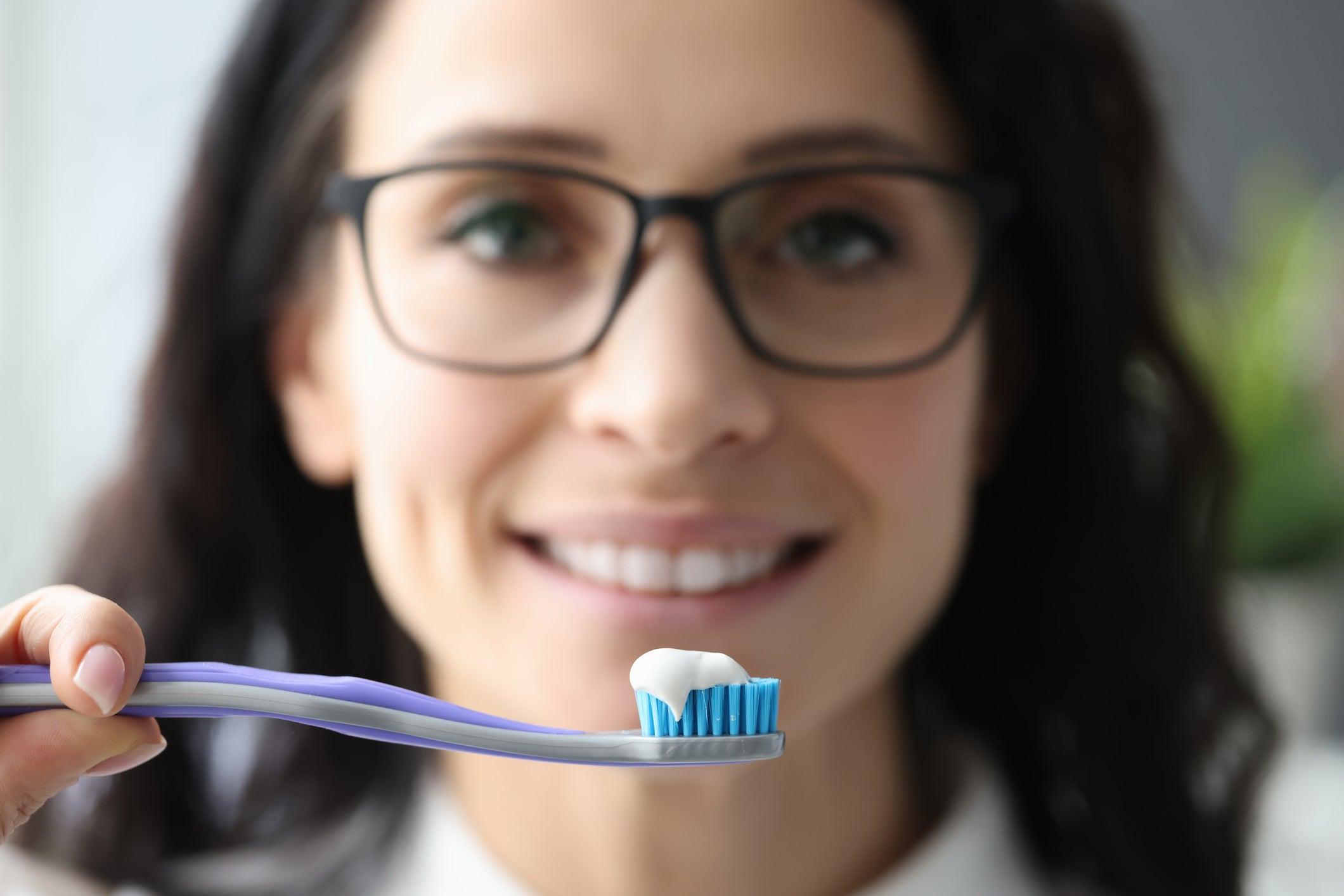
You care for your teeth to keep them healthy and strong, but, as you may know, poor dental health can negatively affect other systems in your body. There is a connection between diabetes and gum disease, for instance, and bacteria from tooth decay can impact your heart health. What you may not realize, though, is that there is a connection between your dental health and your vision. Could caring for your teeth actually protect your vision?
What is the connection between oral health and eye health? According to the American Academy of Ophthalmology, oral infections, including periodontal disease, cause an inflammatory response that can damage the optic nerve and cause vision loss. Additionally, people who have old mercury fillings may be at risk for vision problems that include iritis, color-vision issues, retinitis pigmentosa, and the formation of cataracts.
Poor dental hygiene is also known to contribute to the development of open-angle glaucoma. A degenerative eye disease, open-angle glaucoma results from increased fluid build-up in the eye that places damaging pressure on the optic nerve. Left untreated, this condition can cause vision loss and even blindness. One recent study found that the number of natural teeth a person has, an indication of the person’s dental care, is related to the risk of developing glaucoma.
While seeing an eye doctor is important for keeping your eyes healthy, it seems to be just as important to practice good dental habits. These habits include brushing teeth at least twice a day and flossing at least once, rinsing daily with an anti-bacterial mouthwash, having old fillings replaced with safer materials, and seeing a dentist for gingivitis treatment or a root canal for a badly diseased tooth. Eating a nutrient-dense diet and avoiding unhealthy practices like smoking and using your teeth for things unrelated to chewing food are also healthy habits. It is also a good practice to see a dentist twice a year for preventative cleanings and follow-up exams.
One of the most important factors when it comes to caring for your teeth is finding a good dentist. At Park 56 Dental Group, we offer pediatric, prosthodontics, endodontics, oral surgery, Invisalign®, emergency, and sedation dentistry, all at the highest level of treatment. We serve the Midtown, Central Park, Upper East Side, Park Avenue, and all surrounding Manhattan and New York areas, with a patient-centered practice that has hours to fit your schedule. Schedule your complimentary consultation today by contacting us online or calling us at (212) 826-2322.
-
Does menopause affect your oral health?
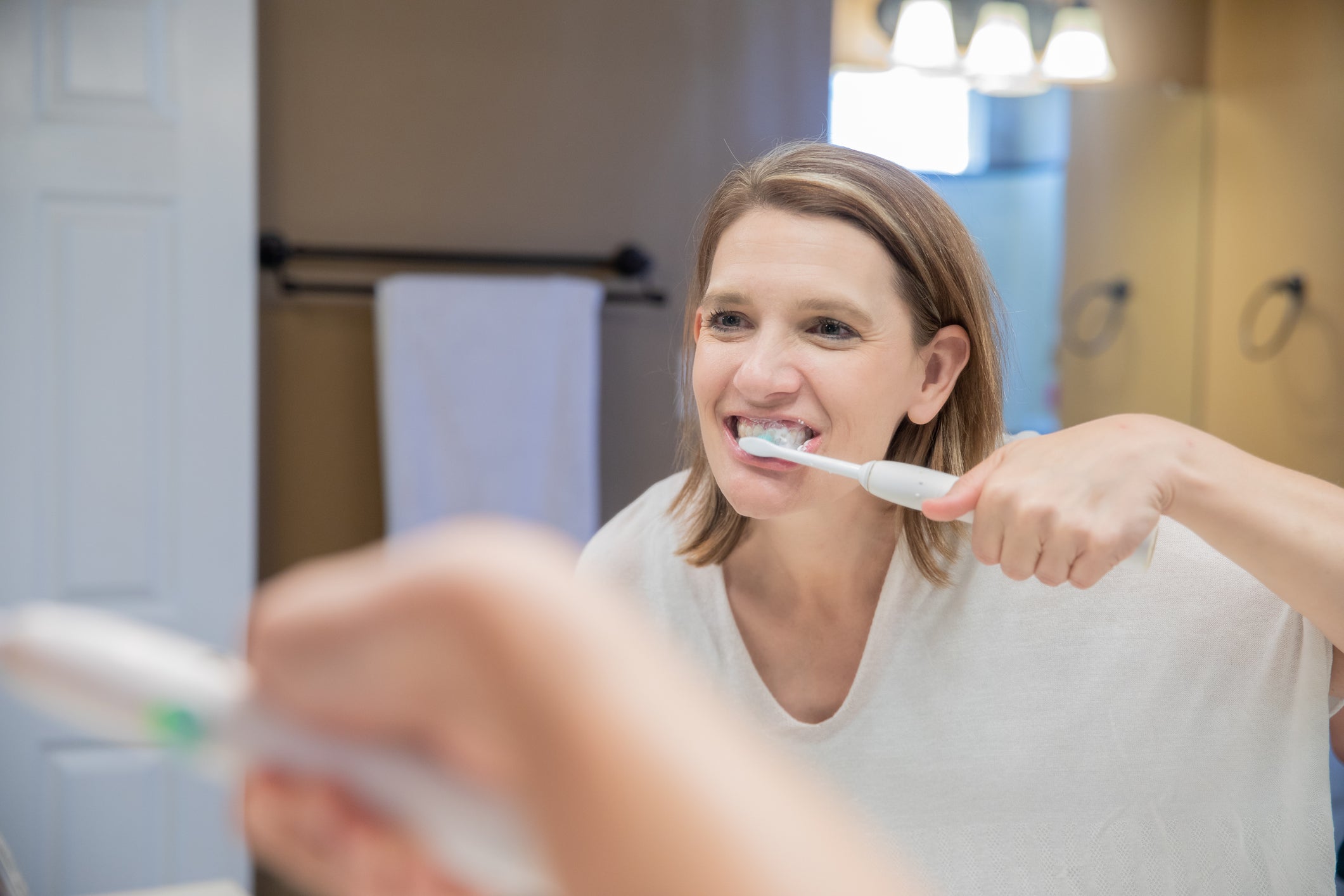
Menopause is a time of life that brings many unpleasant surprises. Hot flashes, insomnia, and mood swings are some of the commonly known symptoms that affect women going through this stage. Less known is the impact of fluctuating hormone levels on the mouth, but there definitely seems to be a link. As estrogen levels decrease during perimenopause and menopause, many women notice sensitive teeth, painful gums, dry mouth, and other issues.
- Hormonal fluctuations can cause tooth sensitivity. If you often find that your teeth hurt after you eat or drink hot or cold things, you may have sensitive teeth. This condition happens when the inner part of the teeth, the dentin, lose their enamel and cementum coatings, leaving the nerves inside vulnerable.
- Gum inflammation is another side effect of menopause. Women going through menopause might experience gingivostomatitis, an oral health condition that causes gum inflammation and canker sores. Periodontal disease can also develop due to low estrogen levels, leading to gum inflammation, bright red or purple gums, gum tenderness and bleeding, receding gums, pus formation, bad breath, bite issues, and loose teeth or gaps between the teeth. Interestingly, another problem that often occurs with menopause is lowered bone density, which can cause bone loss in the jawbone. The treatment for this condition often includes bisphosphonate drugs, which also help prevent the progression, of periodontal disease. Your dentist or periodontist can also treat periodontal disease by scaling to remove tarter, prescribing antimicrobial oral rinses or oral antibiotics, or performing flap surgery. For severe disease, bone or tissue grafts may be necessary. Practicing impeccable oral hygiene is a major part of controlling periodontal disease, and so is quitting smoking.
- Changes in hormone levels can change the way food tastes. Salty, sour, or peppery foods bother some women, and food can sometimes taste unusually bitter or metallic. Sometimes, these menopause-related taste changes are accompanied by a condition known as burning mouth. As the name implies, burning mouth causes burning, pain, and tenderness around the mouth, including the lips tongue, and cheeks.
- Tooth pain can be caused by menopausal changes. For example, declining estrogen levels can decrease the thickness of the oral mucosal epithelium, leading to greater sensitivity to pain and higher vulnerability to mouth infections.
- Dropping hormones can cause dry mouth. Hormones help support saliva production and maintain the consistency of the saliva, but lower levels of estrogen can decrease your mouth’s ability to produce saliva. Dry mouth makes it uncomfortable to eat, but it can also cause gum sensitivity, mouth ulcers, sore gums, an increase in infections, and cavities.
Often, doctors prescribe hormone replacement therapy to help combat the signs of menopause. However, it’s also important to work with your dentist to keep your oral health in good shape. Regular cleanings and check-ups, brushing and flossing daily, taking supplements like calcium and vitamin D, and using products to treat sensitive teeth and dry mouth can all be part of maintaining oral health during menopause. It’s also important to have a good dentist.
At Park 56 Dental Group, we offer pediatric, prosthodontics, endodontics, oral surgery, Invisalign®, emergency, and sedation dentistry, all at the highest level of treatment. We serve the Midtown, Central Park, Upper East Side, Park Avenue, and all surrounding Manhattan and New York areas, with a patient-centered practice that has hours to fit your schedule. Schedule your complimentary consultation today by contacting us online or calling us at (212) 826-2322.
-
How Staying Hydrated Can Help Improve Your Dental Health
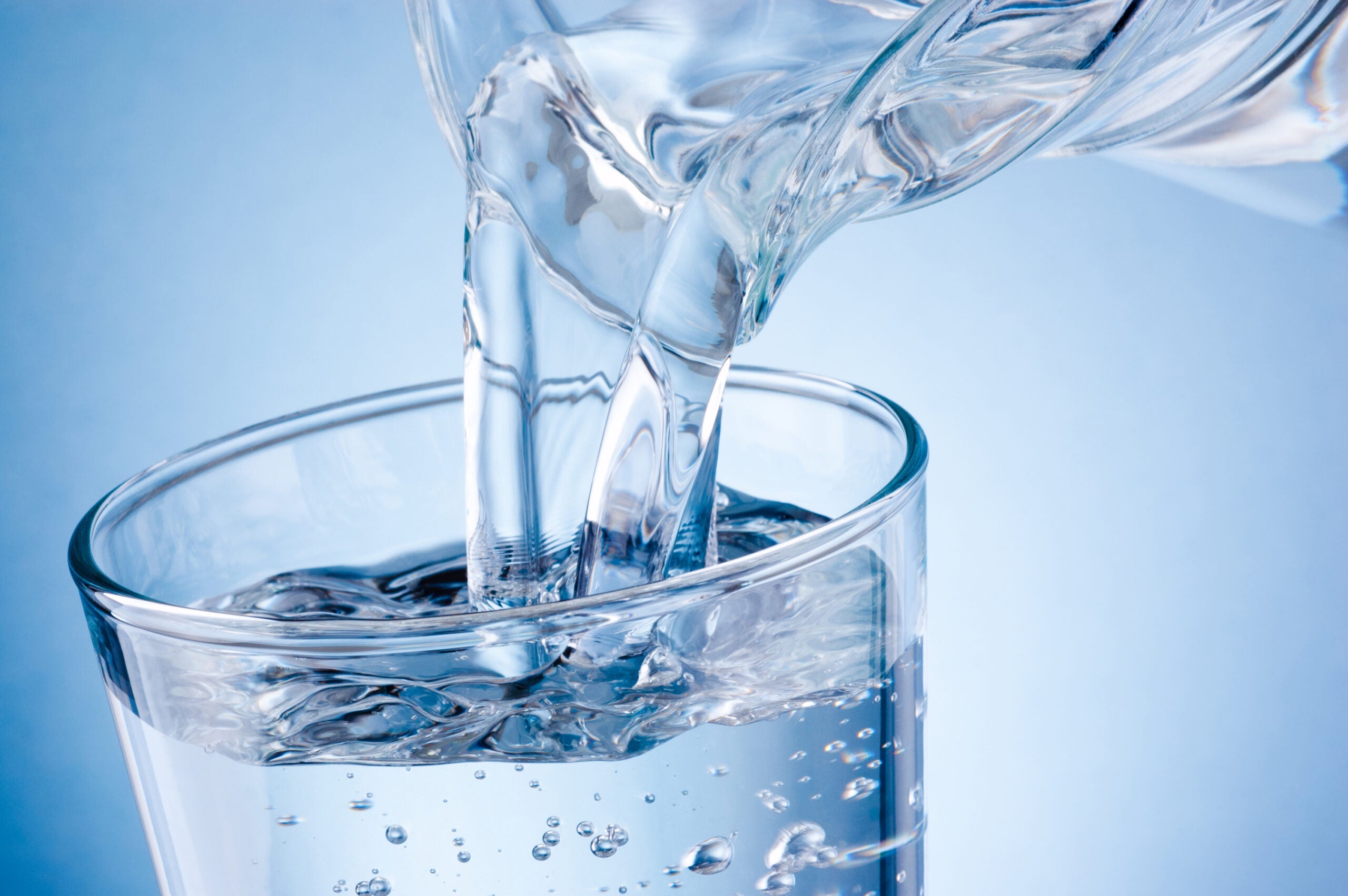
You hear it from everyone: drink more water. Experts advise drinking about eight glasses of water each day to help improve your health. Water is good for you for many reasons; it helps you detox, keeps your skin plump, youthful, and clear, and may even reduce your risk of certain cancers. It helps just about every system in the body, from your circulation to your muscles, and it’s no wonder, because we’re made of about 60 percent water. What you may not know, though, is that in addition to all those benefits, remaining well hydrated can improve your dental health. Let’s take a closer look at why that’s true.
- Water strengthens teeth. Water, especially fluoridated water, contains fluoride and other minerals that help restore the calcium and phosphorous levels in dental enamel. Did you know that in communities with fluoridated water, each dollar spent on fluoridation saves about $38 in dental healthcare costs? Drinking water is especially important for young children because it strengthens teeth as they are forming, making them more cavity-resistant throughout the child’s life.
- Drinking water helps clean the mouth. Drinking sugary beverages like soda, sports drinks, and juice can cause sugars to remain on the surface of the teeth. This leads to growth of the bacteria in plaque, which release harmful acids that degrade tooth enamel and cause decay. Drinking water, on the other hand, washes away food residue and discourages bacterial growth. Because food residue and bacteria cause bad breath, people who drink a lot of water have better smelling breath. Drinking water isn’t a substitute for brushing and flossing, but it can be an important part of your dental care routine.
- Dry mouth can be alleviated by drinking water. This makes sense, because saliva is 99 percent water. Dry mouth is a condition in which the mouth does not produce enough saliva, making it harder to chew and swallow, and causing an elevated risk of tooth decay. Drinking water hydrates the mouth and stimulates saliva production, making it a powerful weapon against dry mouth.
- Water can help prevent stains on the teeth. Foods and beverages like coffee, tomato sauce, wine, curry, and citrus fruits can leave behind stains, but drinking water in between bites or sips can quickly rinse away residue before it has the chance to settle into a stain.
- Water is a calorie free beverage. Consumption of sugary beverages contributes to the rising obesity rate in the United States, and people who drink more than one sugary beverage per day are nearly 30 percent more likely to develop type 2 diabetes. Water has no calories and no sugar, making it a much healthier option.
At Park 56 Dental Group, we offer pediatric, prosthodontics, endodontics, oral surgery, Invisalign®, emergency, and sedation dentistry, all at the highest level of treatment. We serve the Midtown, Central Park, Upper East Side, Park Avenue, and all surrounding Manhattan and New York areas, with a patient-centered practice that has hours to fit your schedule. Schedule your complimentary consultation today by contacting us online or calling us at (212) 826-2322.
-
Issues That Can Cause Tooth Pain
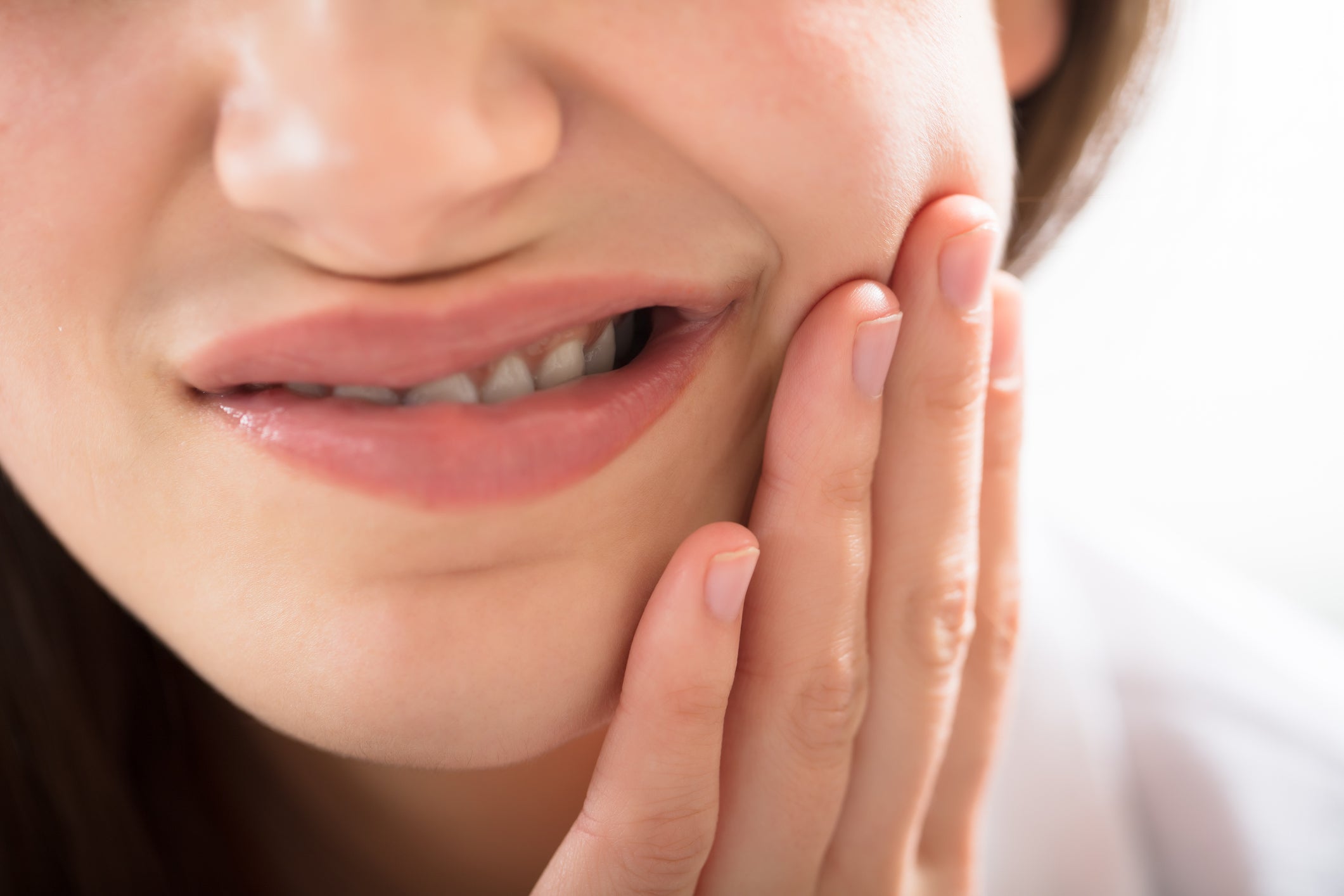
Does your tooth hurt? You’re not alone. Millions of people suffer from tooth pain every year, and it can be a challenge to figure out the cause. Park 56 Dental in New York is here to help you sort through the possibilities. Let’s examine some of the common issues that can cause tooth pain.
Tooth Decay
One of the most common causes of toothache is decay or cavities in the teeth. When food particles remain on the teeth, they are broken down by bacteria which produce acids that erode away at tooth enamel. This eroding action causes holes in the teeth (cavities) which can be quite painful when exposed to hot or cold temperatures or when pressure is applied to them. Visiting your dentist regularly for checkups and cleanings can help prevent this type of pain by catching any cavities early and treating them before they become too severe.
Gum Disease
Gum disease occurs when poor oral hygiene allows bacteria to build up on your teeth and gums, leading to inflammation and infection in the area around your teeth. Gum disease can lead to receding gums, loose teeth, bad breath, and even tooth loss if left untreated — not to mention plenty of painful symptoms! A good preventive measure for avoiding gum disease is to brush two times a day for two minutes each time, flossing once per day as well as seeing your dentist regularly for checkups and cleanings.
Infection
A dental infection occurs when bacteria enter an area inside or around a tooth where it doesn’t belong – such as an abscessed tooth/root canal or wisdom teeth coming through improperly – leading to swelling and pain. If an infection has reached this point, it will likely require professional treatment by a dentist such as antibiotics or even extraction in some cases. Regular visits with your dentist will help keep infections at bay by identifying any potential issues early on before they have a chance to escalate into something more serious requiring more intervention from your dental team.
How to Avoid Tooth Pain
One of the worst sensations is tooth pain; it’s sharp, agonizing, and often comes out of nowhere. Most tooth pain is caused by tooth decay or an abscessed tooth, but there are several steps people can take to help avoid toothaches. Brushing twice daily for two minutes, as well as flossing every day can help ensure that food does not get stuck in between teeth and cause issues. Additionally, remember to use toothpaste with fluoride; this helps protect the enamel on our teeth, which is the protective outer coating to the tooth. Also, be sure to rinse the mouth after meals, and stay away from sugary drinks and snacks. Too much sugar can erode tooth enamel over time. Taking these simple steps can help you prevent tooth pain in the long run.
Visit Park 56 Dental Today!
No one likes dealing with tooth pain, but unfortunately, it’s something that many people experience at some point in their lives. At Park 56 Dental in New York, we understand how difficult it can be when trying to identify what might be causing the discomfort. Contact us today to schedule an appointment or book online!
-
Foods That are Secretly Ruining Your Teeth

There are certain foods that everyone knows are bad for your teeth, like sticky candy and sugary sodas. Other foods, though, are a little sneakier. In fact, you may be eating a healthy diet and still be damaging your teeth. Don’t worry, if your favorite foods are on this list, you don’t have to give them up forever. Just make sure that you’re aware of the damage they can do, eat them in moderation, and keep up with your oral hygiene and regular dental check-ups.
- It might surprise you to learn that fresh fruit can damage your teeth. It’s a healthy choice for a snack, but some fruit is also high in enamel-eroding acid and cavity-causing sugar. Apples, citrus fruits, and strawberries all fall into this category, but that doesn’t mean you shouldn’t eat them. Just make sure to rinse your mouth with water to help clean the sugars and acid from your teeth.
- Dried fruit is worse than fresh fruit when it comes to oral health. They’re a great source of fiber, but they contain a lot of sugar and they’re sticky enough to cling to your teeth. All that sugar stuck to your teeth creates the perfect environment to welcome bacteria and cause cavities.
- Popcorn is a nearly irresistible snack, but it’s not great for your teeth. First, it’s high in carbs, which turn into sugars and feed bacteria. Then, the kernels and other particles can get stuck in your teeth or lodged in your gums. Popcorn bits between the teeth help bacteria grow, and when you pull kernels from under your gums, they leave gaps where bacteria can invade. If you can’t resist snacking on popcorn, make sure to brush and floss afterwards.
- What you drink can be just as damaging as the things you eat. Diet soda may seem like a good alternative to regular soda, but the acid in the soda can damage your enamel, and the artificial sweeteners promote the growth of bacteria. Fizzy waters with natural flavors are a better option because they don’t have sugar or sweeteners. Wine, coffee, and tea can all stain your teeth, and sports drinks tend to be loaded with sugar. Limit these beverages, and when you do drink them, make sure to follow up with a glass of water to rinse your teeth.
- Watch how you eat nuts. When choosing a nut butter, pick one without added sugars. If you’re eating almonds, choose slivered almonds to reduce the risk of cracking your teeth.
- Pickles can wear down your tooth enamel. Sweet pickles are especially bad for your teeth because of the added sugar, but even dill pickles have acid that’s very damaging. To cut the acidity, enjoy pickles in moderation and rinse your mouth with water after eating them. Eating cheese with your pickles can also help neutralize the acid.
- Beware of bread. Bread may seem harmless enough, but when your saliva breaks down the starch in bread, it converts it to sugar. White bread is the worst, because it sticks to your teeth, so choose whole grain bread for your sandwiches.
- Water is great for your teeth, unless it’s frozen. When you chew on ice, you can chip away your tooth enamel and even break your teeth. Instead of chewing on ice, reach for celery sticks or baby carrots for that satisfying crunch.
No matter what you eat, regular dental appointments are the key to keeping your teeth healthy. When it’s time for a check-up, choose the practice that was voted best dentist in NYC! At Park 56 Dental Group, we offer pediatric, prosthodontics, endodontics, oral surgery, Invisalign®, emergency, and sedation dentistry, all at the highest level of treatment. We serve the Midtown, Central Park, Upper East Side, Park Avenue, and all surrounding Manhattan and New York areas, with a patient-centered practice that has hours to fit your schedule. Schedule your complimentary consultation today by contacting us online or calling us at (212) 826-2322.
-
How Your Oral Health Affects Your Mental Health

Your oral health is important for more than just your teeth and gums. It can also affect your mental health. Poor oral health can make your mental health worse. For example, if you have gum disease, you may be more likely to develop depression. And if you have tooth pain, it can lead to anxiety and stress. Read on to learn the ways that your oral health can affect your mental health.
Gum Disease and Depression
Gum disease is an infection of the gums that can cause inflammation, bleeding, and pain. If you have gum disease, you may be more likely to develop depression. This is because the inflammation from gum disease can affect the brain’s chemistry and increase the levels of stress hormones in the body.
Tooth Pain and Anxiety
Tooth pain is a common problem that can lead to anxiety and stress. If you have tooth pain, it can be difficult to concentrate on work or other activities. And the pain can make it hard to get a good night’s sleep. This can lead to fatigue and irritability.
Bad Breath and Social Anxiety
Bad breath (halitosis) is another oral health problem that can cause social anxiety. If you’re worried about your breath, you may avoid social situations where you have to talk to people. This can affect your work, school, and personal relationships.
If you’re experiencing any of these problems, it’s important to see a dentist or other healthcare provider. They can help you manage your oral health and treat any problems that you may have.
Poor Oral Health and Sleep Problems
There is a strong connection between oral health and sleep quality. Poor oral health can lead to sleep problems, which can in turn worsen mental health symptoms.
Poor oral hygiene can cause gum disease, which can lead to inflammation and pain. This can make it difficult to get a good night’s sleep. In addition, tooth pain can also disrupt sleep.
Sleep deprivation can worsen mental health conditions such as depression and anxiety. It can also make it difficult to concentrate and make good decisions. Poor sleep can also lead to irritability and moodiness.
If you are struggling with your mental health, it is important to take care of your oral health. Be sure to brush and floss regularly, and see your dentist
Oral Health and Self-Esteem
It’s no secret that your oral health can have a big impact on your confidence and self-esteem. If you’re not happy with the way your teeth look, it can be hard to feel good about yourself when you smile or talk.
What to Do
There are a few ways that you can improve your oral health and reduce the impact it has on your mental health:
- Make sure to brush and floss your teeth regularly. This will help to remove plaque and bacteria from your mouth, which can cause infections.
- Visit your dentist regularly for checkups and cleanings. This will help to identify any problems early on and prevent them from getting worse.
- Eat a healthy diet and avoid sugary drinks. This will help to keep your teeth healthy and strong.
If you are struggling with your oral health, make sure to talk to a dentist at Park 56 Dental in New York. Our team can help you find the best way to improve your oral health and reduce the impact it has on your mental health.
-
Debunking Dental Myths

There are many reasons dental myths exist. Sometimes, they are perpetuated by people who want to sell a product or service. Other times, they are simply the result of misinformation. And still other times, they may be based on outdated information or folk beliefs.
Whatever the reason, dental myths can be harmful if they lead people to make decisions about their oral health that are not in their best interests. That’s why it’s important to be aware of some of the most common dental myths and to know the facts behind them.
Myth 1: Hard Toothbrushing Damages the Enamel
One common myth is that brushing your teeth too hard will damage your enamel. The truth is that while aggressive brushing can cause wear and tear on your tooth enamel, it is not likely to damage it. However, brushing too hard can irritate your gums and cause other problems.
Myth 2: You Don’t Need to Floss If You Brush Regularly
Another myth is that flossing is not necessary if you brush regularly. This is simply not true. Brushing alone cannot remove all the plaque and bacteria from between your teeth. Flossing is an important part of oral hygiene because it helps to remove these things and can prevent gum disease.
Myth 3: Mouthwashes Don’t Really Work
A third myth is that mouthwashes are not effective at reducing plaque or preventing gum disease. Again, this is false. Mouthwashes can help to reduce plaque and keep your gums healthy. Just be sure to a mouthwash that contains fluoride, as this will help to protect your teeth from cavities.
Myth 4: You Should Brush Your Teeth After Every Meal
You don’t need to brush your teeth immediately after eating. It’s actually more important to wait 30 minutes to an hour before brushing, so that the acids from your food have time to dissipate.
Myth 5: Whitening Products Will Damage Your Teeth
Professional whitening treatments performed by your dentist are safe and will not damage your teeth. Over-the-counter whitening products may cause some sensitivity, but this is usually temporary.
Myth 6: Dental Visits Are Only Necessary When You Have Problems with Your Teeth
It’s important to visit the dentist regularly for checkups and cleanings, even if you’re not experiencing any problems with your teeth. This way, your dentist can catch any problems early and prevent them from getting worse.
We hope this has helped clear up some of the myths surrounding dental care! Remember, brushing twice a day, flossing daily, and visiting your dentist regularly are the best ways to maintain healthy teeth and gums.
Choose Park 56 Dental in New York for Your Dental Needs!
If you’re looking for a dentist in New York, look no further than Park 56 Dental. Our experienced dentists and staff provide comprehensive dental care for patients of all ages, from routine cleanings and exams to more complex procedures like root canals, tooth extractions, and dental implants. We use the latest technology and techniques to ensure that our patients receive the best possible care.
Call us today at 646-679-3989 to schedule an appointment!
-
How Acid Reflux Can Ruin Your Teeth

Heartburn is a common complaint, but if you’re experiencing heartburn or acid indigestion on a daily basis, you may be suffering from Acid Reflux, also known as GERD, Gastroesophageal Reflux Disease. GERD happens when the muscles of the esophagus relax and let stomach acids flow upward, sometimes into the mouth. As the condition progresses, the esophageal lining becomes corroded. It’s very uncomfortable, causing the burning sensation of heartburn. But have you ever considered that acid reflux could be damaging your teeth?
Some of the symptoms of GERD include not only heartburn, but also difficulty swallowing, a burning sensation in the mouth, a sore throat and regurgitation. A person with GERD may experience nausea, vomiting, belching, and chronic coughing. Stomach acid that reaches the mouth can also cause erosion of tooth enamel, tooth sensitivity, chipping and discoloration of teeth, and bad breath.
You probably already know that acid is bad for your tooth enamel. Oral acid, which is usually produced by bacteria, foods, and beverages, can dissolve the minerals in enamel, causing erosion and decay. Stomach acid is extremely strong, with a pH of 2.0 or less, so it can cause even worse damage to the enamel, leaving teeth yellowed, pitted, and sensitive.
What can you do to keep GERD from ruining your teeth? Talk to your doctor about managing your symptoms. You might need medication, and your doctor may recommend some lifestyle changes. These include:
- Avoiding trigger foods like chocolate, tomato-based foods, alcohol, coffee, and spicy or greasy foods.
- Quitting smoking.
- Not eating for several hours before bed.
- Losing weight.
- Not wearing tight clothing.
You can also lessen the effects of acid in your mouth. This can be done by stimulating saliva production by drinking water, taking a saliva booster, or chewing gum. You can also help neutralize acid by rinsing with plain water or a cup of water mixed with ½ teaspoon of baking soda. Antacid tablets can also help balance the pH of your mouth.
Your dentist can also help. Fluoride can strengthen your enamel, and your doctor can apply topical fluoride or prescribe a special rinse that has a higher fluoride concentration than you can get over the counter. Seeing your dentist twice a year allows the condition of your enamel to be evaluated, and your dentist can catch and treat problems while they’re still minor.
If you’re looking for a dentist in New York, choose the practice that was voted best dentist in NYC! At Park 56 Dental Group, we offer pediatric, prosthodontics, endodontics, oral surgery, Invisalign®, emergency, and sedation dentistry, all at the highest level of treatment. We serve the Midtown, Central Park, Upper East Side, Park Avenue, and all surrounding Manhattan and New York areas, with a patient-centered practice that has hours to fit your schedule. Schedule your complimentary consultation today by contacting us online or calling us at (212) 826-2322.
-
The Link Between Periodontal Disease and Premature Birth

It’s long been known that periodontal disease is a serious health problem. Beyond causing tooth loss and bleeding gums, periodontal disease can be detrimental to the whole body when bacteria from infected gums enters the bloodstream. Now, new research has revealed a link between periodontal disease and pre-term birth, showing that women with gum disease are substantially more likely to go into early labor than women with healthy gums.
The study, conducted by University Hospital Hradec Králové, Czech Republic, and led by Dr Vladimíra Radochová, from the department of dentistry, was published in the Journal of Clinical Periodontology. According to the Chief Executive of the Oral Health Foundation, Dr. Nigel Carter OBE, the research underscores the affect of oral health on a person’s overall health. The study showed that, of women who went into labor before 37 weeks of pregnancy, 45 percent had gum disease. By contrast, only 29 percent of women who experienced a perfect pregnancy had gum disease.
Worldwide, premature labor is the result of about 10 percent of all pregnancies. In the UK, the rate is about seven percent, and about 10 percent of babies in the United States arrive early, according to the Centers for Disease Control and Prevention. Premature birth can be the result of changes in the cervix or premature rupture of membranes, also known as “waters breaking.” So, what’s the link to periodontal disease?
It’s thought that bacteria in plaque traveling through the bloodstream to the placenta causes inflammation. Part of the problem is that it can be difficult for women to maintain good oral health while pregnant. Hormonal changes can make the gums more likely to be sore, swollen, and even bleed, because they’re more vulnerable to plaque. The women involved in the study who went into early labor were found to have eight times more plaque than the women with more favorable outcomes, and dental health that was four times lower. In addition to gum disease, women who had premature labor were more likely to have untreated tooth decay or fillings.
The takeaway from the study is that it’s important for a woman to care for her mouth to help ensure a healthy pregnancy. Brushing twice a day and flossing can help maintain oral health, and refraining from smoking and alcohol consumption can also reduce the chance of gum disease. Most important are regular dental appointments, to stay on top of oral health issues and keep periodontal disease at bay.
During pregnancy and every other stage of life, when you’re looking for excellent dental care and advice you can trust, choose the practice that was voted best dentist in NYC! At Park 56 Dental Group, we offer pediatric, prosthodontics, endodontics, oral surgery, Invisalign®, emergency, and sedation dentistry, all at the highest level of treatment. We serve the Midtown, Central Park, Upper East Side, Park Avenue, and all surrounding Manhattan and New York areas, with a patient-centered practice that has hours to fit your schedule. Schedule your complimentary consultation today by contacting us online or calling us at (212) 826-2322.
-
Why You Should Invest in Your Dental Health
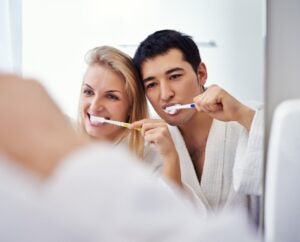
Hey! Yes, you! You matter! Let’s talk about an important way to show your body that you care!
Yep! We’re talking about your dental health and, in turn, your overall wellbeing! Your mouth is there for you to help with communicating, both verbally and non-verbally, breathing, and eating. Your confidence is conveyed through the communications that start from your mouth, including both your teeth and your smile! It is quite difficult to imagine living without a functioning mouth!
Did you know that your oral hygiene and dental health practices impact your entire body? In fact, many health problems, including oral health, are preventable just by intentionally caring for your teeth! So, let’s dive in and see why it is worth your time to invest in your dental health!
- Daily Habits are Healthy Habits
Plaque build-up is a leading cause in gum disease which leads to heart disease, cancer, and other illnesses. Flossing, brushing, and using antibacterial mouthwash are simple daily habits that can prevent not only cavities but also gum disease and other illnesses.
Check out this fact: The U.S. Centers for Disease Control (CDC) estimates that 31.6% of adults between the ages of 20 and 44 currently have untreated cavities AND that 46% of adults over the age of 29 already have gum disease. While this is shocking news, matters are made worse by the fact that this is preventable by employing simple daily oral health routines.
- Your Overall Health
Proper hygiene habits and a nutritious diet benefit not just your teeth and gums but your entire body’s health and wellbeing. Preventing gum disease can lead to reducing the risk of other complications, including heart disease, certain types of cancer, respiratory problems, kidney disease, joint inflammation, and even diabetic complications.
Having healthy daily habits is important AND so is keeping routine dental visits a priority. Just like you go to doctors for other annual check-ups, it is extremely important to visit your dentist every 6 months for routine cleanings, x-rays, and check-ups. Just remember, prevention is WAY easier than treating a problem that does arise! Besides, consistent proper care is FAR more comfortable (and affordable) than treating problems that do arise!
- Your Teeth Are Worth Your Investment
Daily habits, such as flossing, brushing and using mouthwash, most definitely help with caring for your teeth and oral hygiene. It is also very much worth your time and money if you see a dentist regularly, every 6 months, for a full cleaning and exam. Look at this cost and prevention as an investment in critical resources rather than “just another expense” because the pain of dental problems and payment for their repairs can be mostly avoidable.
At Park 56 Dental, we are dedicated to safely and comfortably helping you care for your smile. Our talented staff are compassionate about our services. Contact us today to make an appointment and invest into the quality and caring of and for your smile! So, what are you waiting for? Contact us today to schedule an appointment at (646)679-3989!
RECENT POSTS
categories
- Uncategorized
- Cosmetic Dentistry
- Veneers
- Healthier Teeth
- Teeth Whitening
- Dental Health
- Video
- Dental Emergencies
- Invisalign
- Dental Implants
- Root Canal
- Sedation Dentistry
- Infographic
- Dental Crowns and Bridges
- Dental Anxiety
- Gum Disease
- COVID-19
- Bad Breath
- New York Dentist
- Cut out sugar
- General Dentistry
- Oral Health
- Oral Cancer
- Dry Mouth
- Gum Health
- Toothache
- Dental Sealants
- Cavities



